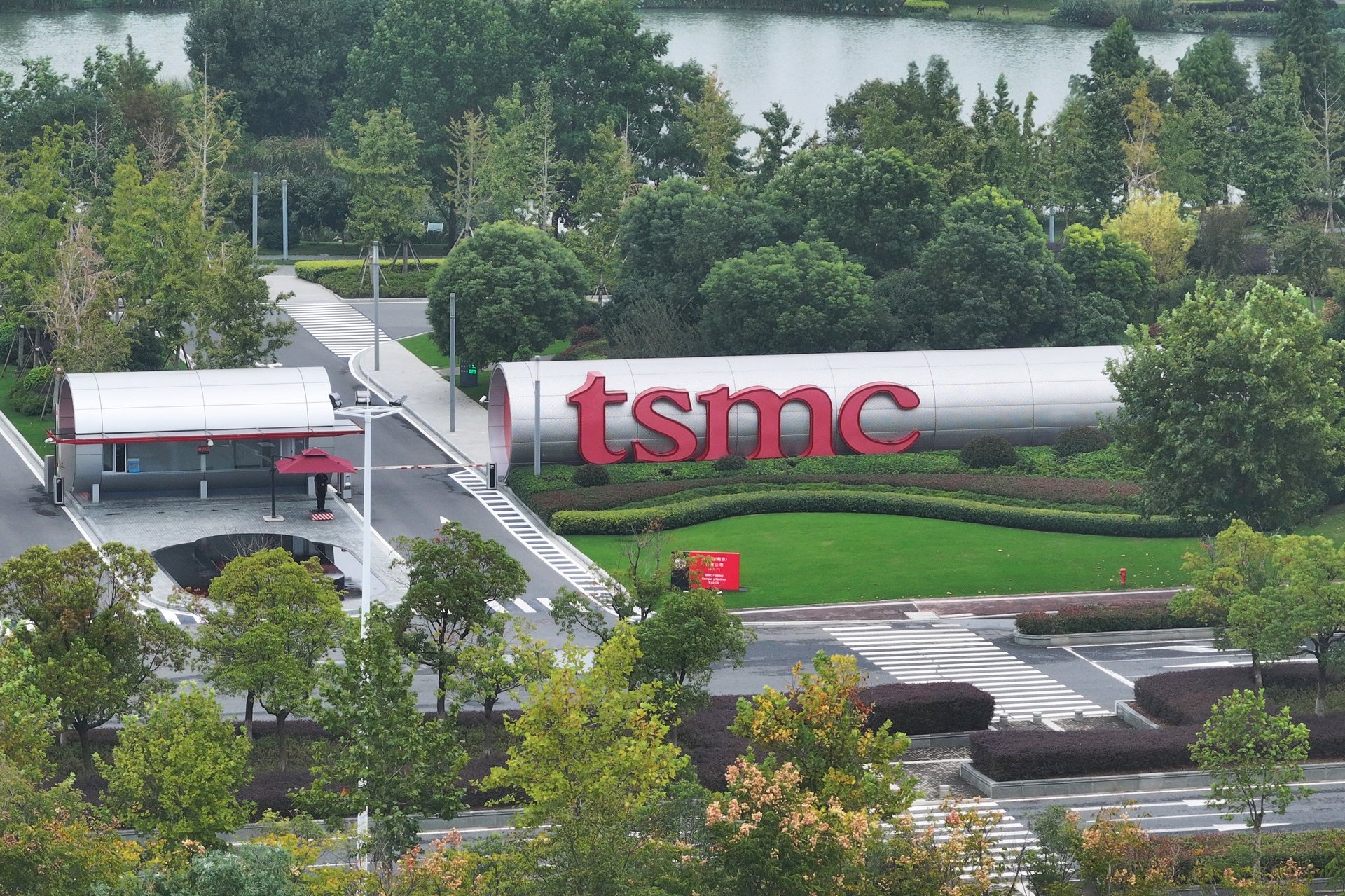TSMC doesn't actually want to buy Intel. Here's why
The Trump administration is pushing a deal. But the risks of cutting one outweigh those of rebuffing Washington

The Trump administration’s push to have TSMC buy Intel’s chipmaking operations faces a major barrier: The Taiwanese firm isn’t actually interested, and even the threat of tariffs probably won’t be enough to force a deal.
Suggested Reading
“TSMC (TSM) has stated very clearly that it has no interest in taking a stake in Intel (INTC), and running Intel’s fabs alone or in a [joint venture] would be equally unenticing,” Tim Culpan, founder of the media outlet Culpium and a long-time journalist tracking the chip industry from Taiwan, told Quartz.
Related Content
Intel stock surged 16% Tuesday on reports that TSMC and Broadcom (AVGO) could each buy different parts of the company. The stock has rallied to start 2025.
But TSMC’s leadership is a product of its culture, which probably wouldn’t mesh well with Intel’s, Culpan said.
“Intel didn’t fall behind because of a lack of funds or equipment,” he said. “It fell behind because of successive internal failures related to its approach to technological and business development.”
TSMC is a foundry that makes semiconductors designed by its clients, not its own chips. So it likes to be neutral, both politically and among its clients and its suppliers. That would be more difficult if it ran the operations of a chip-design firm like Intel.
Additionally, a joint venture with Intel would focus on advanced semiconductor technology, so TSMC’s advantage could be jeopardized by leaks, the Taipei Times reported last week, citing Liu Pei-chen, a researcher at the Taiwan Industry Economics Database of the Taiwan Institute of Economic Research.
President Donald Trump’s commitment to prioritizing U.S. interests may also put the firm at a disadvantage, Liu told the newspaper. He said the combined risks from a potential deal are great enough that TSMC would do better to accept American tariffs. Its technological edge gives it enough bargaining power to allow it to pass the added costs along to buyers.
“It feels like the Trump administration is being poorly advised by people pushing their own agenda, not necessarily what’s best for the U.S.,” Culpan said.
It’s a similar approach to President Joe Biden’s but more forceful — and could jeopardize American access to the world’s best chips.
“The best solution for everyone,” Culpan said, “would be for TSMC to announce an expansion in Arizona, agree to make more chips for Intel and other U.S. companies, and boost cooperation in packaging, which is crucial to AI.”
Any eventual resolution between TSMC and the U.S government can be expected “to involve mutual concessions, ensuring that TSMC derives some strategic or economic benefit,” said Moon Surana, a portfolio manager at Harding Loevner, which owns the stock in its global equity strategy.
“Historically, the company has prioritized long-term customer relationships and sustainable value creation over the pursuit of monopolistic pricing power,” she told Quartz. “A similarly balanced outcome is anticipated in this case.”